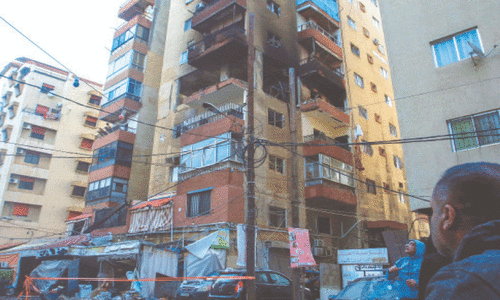
LAHORE: Pakistan has a huge potential for rice exports to European Union but the exporters must pay attention towards meeting import specifications, said Thomas Unger of Eurofins Global Control GmbH.
He was speaking at a seminar organised by the Rice Exporters Association of Pakistan (Reap) on Thursday to discuss the challenges faced by Pakistani rice exporters in the European market.
Rice exports to European countries are picking up but exporters should pay attention towards issues like aflatoxins, pesticide residue and new regulations being made by these markets, Mr Unger said. However, he said, complaints of aflatoxins in rice consignments from Pakistan have reduced to almost negligible levels.
On the occasion, rice exporters sought government support to capture India’s $260 million rice business with the European Union, following the EU’s zero tolerance policy on tricyclazole chemical found in Indian grains.
Reap Chairman Chaudhry Sameeullah Naeem said Pakistan can target India’s Basmati rice share in the EU market following stringent policies placed by the European Union on the presence of hazardous pesticides in the commodity.
He asserted that Pakistan can enhance its rice export to EU from 150,000 tonnes to 350,000 tonnes, grabbing the share of 200,000 tonnes of Indian rice exports to the EU which may be stopped due to strict regulations.
“This presents an opportunity to grab India’s market share, because it will at least take two cycles to reduce the consumption of Tricyclazole in India,” he added.
From Jan 1, 2018, all countries that export Basmati rice to the EU must bring down the maximum residue limit (MRL) level for Tricyclazole to 0.01mg per kg. Up till now, the EU was accepting 1mg per kg from different countries including India.
Tricyclazole is a fungicide used by Indian farmers in more than 70 per cent of Basmati crops.
The Reap chief stressed that Pakistani farmers do not use such chemicals to protect their crops. “Basmati varieties grown in Pakistan do not require use of the fungicide and stand to gain from the de facto ban on Indian exports,” he said.
India exported around 350,000 tonnes of rice worth $260 million to the European Union countries during the last financial year, 70pc of which has tricyclazole limit of 1mg per 1kg.
Mr Naeem demanded the government to announce matching grant to display Pakistani product at international chains.
He said Basmati rice export have been facing severe competition from India, regretting the lack of research and non-availability of new seeds which caused low yields. High input costs have made Pakistani Basmati rice totally uncompetitive, he added.
Published in Dawn, November 17th, 2017













































